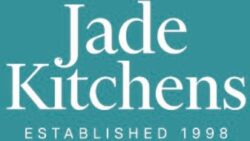The Ken Dinnerville Memorial Handicap is a race with a rich history and steeped in tradition. Since moving to the Illawarra, I have quickly learnt about the significance of this event and what it means to so many. To win the 64thedition of this iconic event is certainly an honour; a win that I never dreamed possible.
A cold fresh morning greeted the riders on Sunday morning, however, much of the talk revolved around the idyllic race conditions in comparison to the 2020 event. Clear skies and a light wind was the perfect recipe for front marker groups to be in with a shot of staying away from the scratchies. After doing some homework on previous race results, I calculated that if our group could average around 37 km/hr, then it could be possible to catch the limit groups, in addition to staying away from scratch and block. In the end, this is exactly what happened with the lead riders from scratch and block finishing just 23 seconds behind the winning bunch.
The pace was on right from the start. With the assistance of a light tail wind and 20 willing contributors, the first leg out to Breadalbane was fast. I admit, there were several times that I had to dig deep just to stay with the group. Communication within the group was positive and supportive with several riders, including Lillee Pollock, encouraging riders to keep taking turns when the pace started to drop. Having three other Illawarra riders in the group (Lilliee Pollock [4th], Nathan Evans [7th] and Emily Strumfin [10th]) was certainly a motivating factor that produced such a strong result for the club. Terry Wall’s 3rd place finish gave the club 5 positions in the top 10.
As we sped into Bredalbane, it appeared that the limit riders were also enjoying the benefit of the tail wind. After making the turn, we got our first look at the chasing groups and began to work together into the wind. Our hard work paid off as when we turned to commence the second lap of the course, we were around 3 minutes behind limit. As we reached the crest of the Cullerin range, we had cut that lead down to two minutes. As we sped into Berdalbane for the final time, we caught the remaining riders of the bunch behind the limit riders, who were still just out of our grasp. They put up a strong fight and it was not until the final return climb that we reigned in all but two lone limit riders that had made a break.
With 5km to go we were all together. There were lots of nervous looks over the shoulder to see if the chasing groups were gaining or if we were going to make it to the finish for a bunch sprint amongst ourselves. Having ridden the course previously, as part of the Southern Region Interclub Series, I knew that the finish was a deceptive, slightly uphill affair that I had previously messed up by starting the sprint too early. Conveniently, the race signage along the left hand side of the road provided an indication of 500m, 400m, 300m and 200m to go. With the bunch spread across the road, there wasn’t a lead out train to follow. Looking left and right, I resisted the temptation to start the sprint too early, waiting until just before 200m to go. With my legs fatigued and threatening to cramp, I put my head down, fully committed to the sprint and came away with the win.
After crossing the line, I couldn’t believe what had just happened. Several weeks earlier, I had competed in my first ‘race edition’ of the Grafton to Inverelle. The training and focus required for that event was monumental, and I was extremely disappointed not to be able to stay with the Div 3 leaders as they ascended the Gibraltar Range. Knowing the quality of the field competing in the Ken Dinnerville Memorial Handicap, I had not envisioned that I would be in a position where I would be contesting in a sprint for the win.
My introduction to competitive cycling happened in 1984 when, after watching the Australian men’s 4000m team pursuit Olympic performance, I pulled apart my father’s Speedwell bicycle, painted it white like the Australian team bikes and, with the help of some of the Southern Highlands Cycling Club (SHCC) members, made it into a fixed wheel track bike. Looking back on those days I am very grateful for the support and encouragement of those SHCC members, in addition to the graciousness of my father who did not reprimand me for re-purposing his bicycle.
Great cycling events like the Ken Dinnerville Memorial Handicap are only made possible by a team of dedicated and hard working volunteers. On behalf of all of the riders who competed in the 64th edition of this iconic event, I would like to express our thanks and gratitude to everyone at Cycling NSW and the Illawarra Cycling Club who made this year’s event such a success. Long may it continue to be a premiere race on the Cycling NSW calendar and maintain the memory of Ken Dinnerville.
David Deitz
See the Results: https://illawarracycleclub.org.au/results/2021-dinnerville-race-results/





